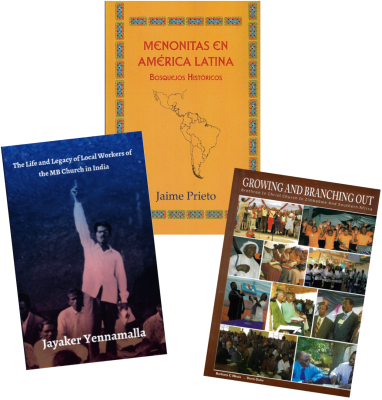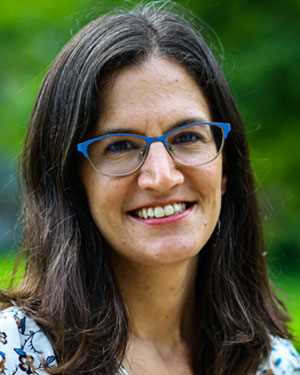From the Director

By Elizabeth Miller, ISGA Director
This past semester, I tried an experiment. Rather than asking students for a traditional research paper in the Anabaptist history course I teach, I required them to study and reflect on biographies of 20th century Anabaptists. We spent a few weeks immersed in the richly-detailed lives of Anabaptists from Burkina Faso, Ethiopia, Congo, and Zimbabwe, using biographies as a way to better understand the contexts in which these individuals lived and their motivations for baptism, church membership and ministry. For the final assignment, some students rewrote a previously published biography, shaping it for publication in the Global Anabaptist Mennonite Encyclopedia Online (GAMEO); others assessed the broader significance of Mennonite biographies published in the Dictionary of African Christian Biography (DACB).
The biography assignment was inspired by ISGA Research Fellow Anicka Fast’s work with biography in the context of West and Central Africa, where Fast leads history-writing workshops focused on the creation of new biographies. These workshops have been profoundly meaningful for both students and instructors. After a recent workshop with Congolese Mennonite and Mennonite Brethren participants led by Fast and Michèle Sigg, executive director of the DACB, Fast shared one participant’s reflections on the role of biography in the Congolese context:
One morning I was chatting at breakfast with Dr. Josué Selemani, a participant from the CEFMC (Mennonite Brethren Churches of the Congo) church in Bukavu. He shared that he was excited to write a biography of Zihindula Pierre, a Mennonite Brethren witness for peace in Eastern Congo, because it felt like this story would make Zihindula live again. He quoted Hebrews 11:4 to emphasize that remembering and writing down the stories of faithful believers from the past is a way to allow them to still speak, even though they have died….Josué explained to me that writing down such stories was a way to maintain continuity with the past and to overcome the ruptures that occur when oral tradition stops being transmitted.
For church communities, biography is a vital way of both remembering what has come before, as well as understanding the present more fully. While in academic circles biography has sometimes been looked down upon as a lesser form of history, Dr. Josué Selemani’s reflections reaffirm biography as a legitimate historical form and method, particularly in contexts that value and cultivate oral tradition.
The DACB is one of the more extensive collections of Christian biography, but other examples abound, even within the Anabaptist tradition. Students in my course this spring worked through the biographies collected in Growing and Branching Out: Brethren in Christ Church in Zimbabwe and South Africa by Barbara Nkala and Doris Dube, adapting them for wider publication in GAMEO. Mennonite Brethren scholar Jayaker Yennamalla’s recent publication, The Life and Legacy of Local Workers of the MB Church in India, seeks to make more visible the contributions of 42 “teachers, preachers, evangelists, bible women, health workers, and social workers” to Mennonite Brethren history in India. “Though local workers played a decisive role in all that took place, their contributions have not so far been given the attention they deserve,” writes Yennamalla. Costa Rican historian Jaime Prieto’s work has prioritized biography for Anabaptist history in Latin America, using it as a way to explore how Mennonites navigated socio-political realities in Latin America and simultaneously constructed multifaceted identities as Anabaptists.
Biographies are expanding the corpus of published Anabaptist history, and although they may hold the deepest meaning for the communities from which they originated, they are accessible points of entry for outsiders as well. In the process of studying biography this semester, students in my course found themselves engaging more deeply with regional church histories and reflecting on their own lives in the process. As one student wrote in their final assessment, “Biographies teach more than historical information, you are left with emotion, a new sense of respect for these communities..and [inspired to] go out in your own region and make a difference.”
Elizabeth Miller
Director of the ISGA/MHL and Assistant Professor of History at Goshen College





